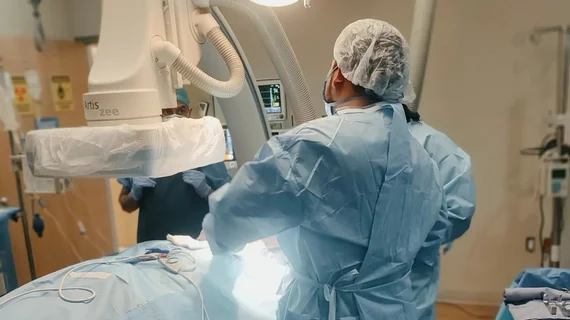Cancer patients who undergo PCI face a higher risk of early mortality
Cancer patients who undergo percutaneous coronary intervention (PCI) face a higher risk of early mortality, according to a new meta-analysis published in Current Problems in Cardiology.[1]
“The cancer population who have an indication for PCI is progressively increasing, posing a conundrum for revascularization due to uncertain risks and benefits in this high-risk population,” wrote first author Akshay Machanahalli Balakrishna, MD, with the department of medicine at Creighton University School of Medicine in Omaha, Nebraska, and colleagues. “Dual-antiplatelet agents, PCI, and drug-eluting stents are not routinely used in cancer patients due to a higher prevalence of thrombocytopenia and elevated risk of thrombosis. Therefore, patients with cancer, particularly those undergoing active cancer treatments, have traditionally been excluded from PCI trials. Despite the fact that the number of cancer patients undergoing PCI is increasing, there is very minimal data on early outcomes and peri-procedural complications in this cohort.”
Balakrishna et al. performed a systemic review and meta-analysis of studies focused on PCI outcomes among patients with a current or historical cancer diagnosis. With two different researchers independently screening each article for inclusion, the group ultimately landed on seven observational studies. The regions covered by these studies included the United States, Netherlands, Japan, Israel and Europe.
The team’s final analysis included nearly 6.6 million patients, and 0.2% presented with either active or historical cancer. Patients with cancer tended to be older and male. They were also more likely to present with comorbidities such as hypertension, peripheral vascular disease, heart failure, prior myocardial infarction and prior stroke.
Overall, PCI patients faced a higher risk of in-hospital mortality, 30-day mortality and in-hospital cardiovascular mortality if they presented with an active or historical cancer diagnosis.
“The reduced utilization of drug-eluting stents and glycoprotein IIb/IIIa inhibitors in patients with cancer may further contribute to the higher rate of adverse outcomes,” the authors wrote. “There was a trend toward lower utilization of statins and dual anti-platelet agents on discharge in patients with cancer which may play an additional role in worse 30-day outcomes in this cohort.”
The risk of needing a blood transfusion was also higher among these patients, but other complication rates were comparable between the two groups.

